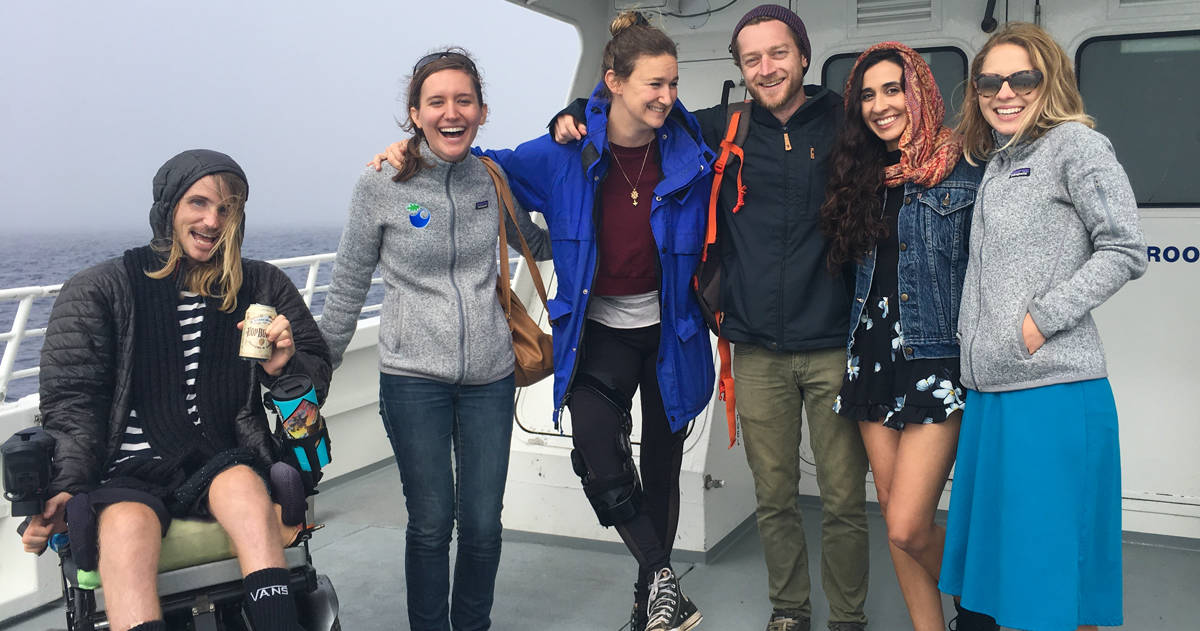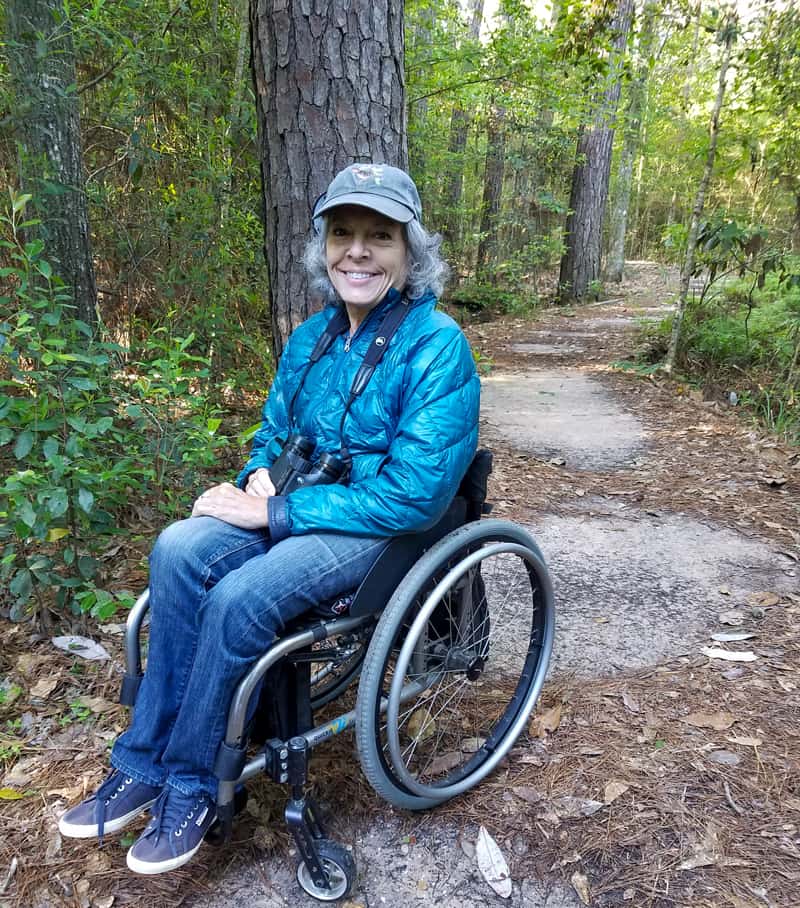
Imagine yourself finding lions on the Serengeti, identifying antibiotics to treat tuberculosis and chasing meteors through space — all from the comfort of your own home. Welcome to the world of citizen science!

.
What is Citizen Science?
Citizen science is when amateur volunteers participate in scientific projects by collecting or processing data in concert with professional scientists. Turns out that the scientific world can’t always do it alone — they need you to help make science happen.
“But I’m not a scientist,” you say? That’s the beauty of citizen science — it’s all about amateurs. You don’t have to know anything about the subject, or even about scientific method, to do it.
“Literally anyone can do citizen science — that’s what’s so cool about it,” says Sean Goral, a C5 quad from southern California. “Anyone can be a citizen scientist. It really just takes time, a little bit of effort and an interest in science.”
Goral recently graduated from the University of California, Santa Barbara with a master’s degree in environmental science management with a citizen science focus. He studied ways to improve the quality of citizen science data via an app that allows amateurs to enter their whale sightings — thus generating information that helps researchers.
Virginia Rose, a para from Texas who loves birding, is a citizen scientist who uses an app called eBird to log her avian observations. Rose was initially skeptical of participating in her particular form of citizen science.
“I’m 60, so I wasn’t born in the age of knowing how to use smartphones,” she says. “My first response to using eBird was ‘I’m not doing that.’ It’s definitely something I had to learn. I found it at first a little intimidating … but I was able pretty quickly to use the basic tools.” And now? “I love it! I use it every time I go birding,” she says with a laugh.
Not only that, but Rose also teaches others to become eBird citizen scientists during her outings for Birdability, a group she created to get people with mobility issues out birding. The woman who once swore she would never use a citizen science app now helps others learn to do just that.
More Than One Way to Contribute
Rose and Goral collect data, but you don’t have to collect data to participate in citizen science. In general, there are two categories of citizen scientists: those who collect data and others who process existing data using a computer and/or smartphone.
If you aren’t into data collection, pick a project that only requires you to use your smartphone or computer — there is likely one that fits nicely with your interests and abilities.

“The Zooniverse web developing team takes accessibility very seriously,” says Cliff Johnson, astronomer and employee of the citizen science platform “Zooniverse.” Zooniverse has hosted online projects since 2009 and has well over 1 million registered volunteers. “On our app, there are tasks for which you can basically swipe left or right to classify an image. Zooniverse helps research teams build their projects to be accessible to the broadest volunteer pool as possible. The more people you can get involved, the better the science will be.”
“A lot of times, it’s very large data sets that some grad student or some poor lab assistant is just not able to process,” says Johnson. “So we use a crowdsourcing aspect of bringing many people to the problem.”
There are other benefits to participating, too, beyond helping scientists.
One aspect of the platform that might not be immediately apparent is that it fosters community. Zooniverse has a message board that allows volunteers and even the scientists to connect, ask questions and share experiences.
“This isn’t just a way of harnessing a large pool of labor,” says Johnson. “We’re really trying to make these into very cooperative and very interactive experiences, both for the research teams and for the volunteers. Beyond a group of willing and capable volunteers to do a large volume of work, citizen science can provide relationships that only improve the projects.”
Participating in these projects may open other doorways. Goral didn’t see a lot of people with disabilities in his science classes. He has noticed barriers to wheelers being involved in science and feels like there is a world of potential future scientists with disabilities out there.
“It would be cool if citizen science could engage and introduce people with disabilities to the world of science. It could break down some of those barriers,” says Goral.
How to Get Involved in Citizen Science
A simple internet search that includes the words “citizen science” and whatever topic you are interested in is a great way to start. For instance, a Google search of “citizen science African lions” led to a Zooniverse project called Snapshot Safari. This project relies on volunteers to look at pictures from remote cameras in Africa and identify the animals in them. This helps researchers study where the animals are located, their movements and more.
A search for “citizen science astronomy” led to a NASA project called “Planet Hunters” that counts on volunteers to review data collected by the Kepler spacecraft in an effort to help discover new planets.
Zooniverse (zooniverse.org) and Sci-Starter (scistarter.org) are two sites that offer a ton of potential projects for you to explore. Citizen Science Games (citizensciencegames.com) features “Cancer Crusade,” which helps researchers design cancer treatments, and the cognitive science project “Alien Game,” which helps scientists discover how humans solve complex puzzles.
Clearly there are many opportunities to get involved. Regardless of your participation style and interests, there is probably a project that needs your help.
So why not just go for it? After all, science is depending on you!
Support New MobilityWait! Before you wander off to other parts of the internet, please consider supporting New Mobility. For more than three decades, New Mobility has published groundbreaking content for active wheelchair users. We share practical advice from wheelchair users across the country, review life-changing technology and demand equity in healthcare, travel and all facets of life. But none of this is cheap, easy or profitable. Your support helps us give wheelchair users the resources to build a fulfilling life. |


Recent Comments
Bill on LapStacker Relaunches Wheelchair Carrying System
Phillip Gossett on Functional Fitness: How To Make Your Transfers Easier
Kevin Hoy on TiLite Releases Its First Carbon Fiber Wheelchair